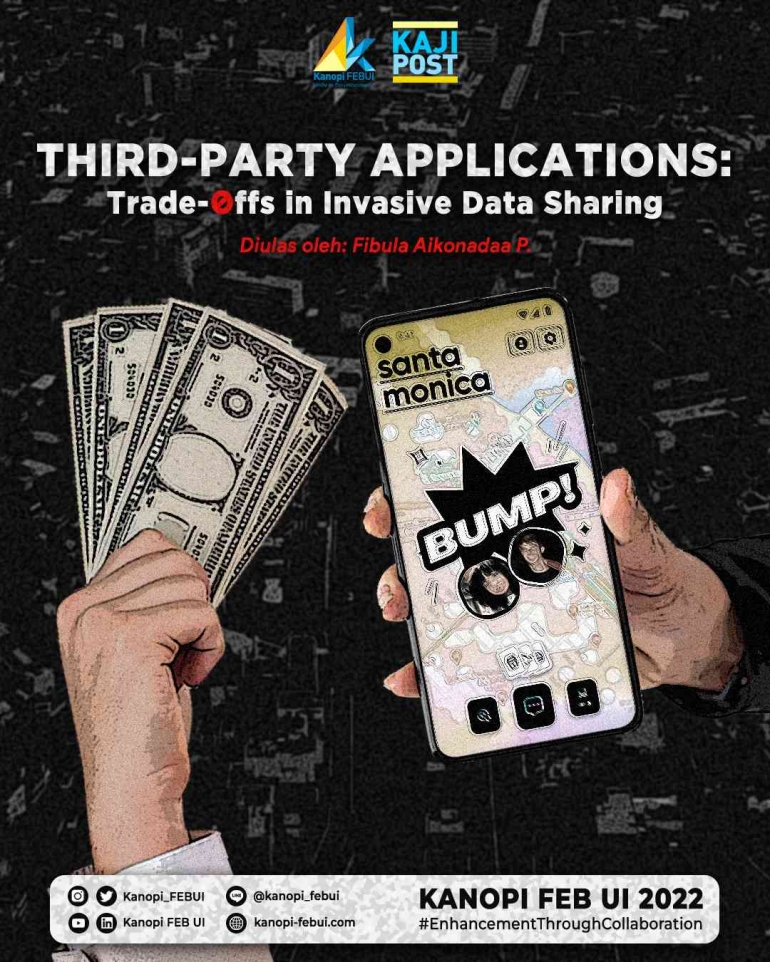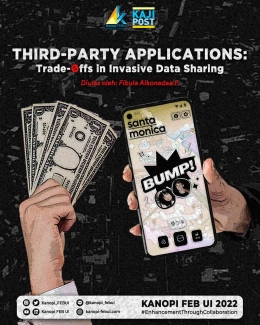To Restrict Third-Party Applications Or Favor Information Sharing?
The final debate comes to these two sides: being for or against data sharing and allowing third parties to assess one's information. In general, the possibility of technological data sharing was something beyond the dreams of experts from previous generations. To quote Blattberg and Deighton (1991), professors from Northwestern University and Harvard Business School, respectively:
It's a marketer's dream - the ability to develop interactive relationships with individual customers. Technology, in the form of the database, is making this dream a reality. Now companies can keep track of customer preferences and tailor advertising and promotions to those needs.
Data sharing can provide various different benefits for both customers and firms. However, it is important to carefully consider the potential risks and uncertainties remembering that the economics to decision-making is quite different in terms of privacy sharing, especially with the lack of information from the customers' side. From here, ensuring that one's personal data is shared in a responsible and ethical manner is very important (especially in this case) to maximize the potential benefits coming from utilizing third-party applications. This may include taking steps to protect personal information and ensuring that it is used in accordance with applicable laws and regulations, as well as obtaining the appropriate consent from individuals.
Ultimately, the decision to share data with third-party applications differs for each individual. One thing to take into consideration is the potential benefits and risks, which should be consistent with the principles of data protection and privacy.
By Fibula Aikonadaa Patiroi | Ilmu Ekonomi 2021 | Staff Divisi Kajian Kanopi FEB UI 2022
Bibliography:
Acquisti, A. (2010). The Economics of Personal Data and the Economics of Privacy. OECD. https://www.oecd.org/sti/ieconomy/46968784.pdf
Grossklags, J., & Acquisti, A. (2007). What can behavioral economics teach us about privacy? Digital Privacy, 363-377. https://doi.org/10.1201/9781420052183.ch18
Midrack. (2021, September 12). What's a third-party app? Lifewire. https://www.lifewire.com/what-is-a-third-party-app-4154068
Nantham, S. (2022, November 22). Bounded rationality - Limitations and examples. Best OKR Software by Profit.co. https://www.profit.co/blog/behavioral-economics/bounded-rationality-limitations-and-examples/
OECD. (2015). How data now drive innovation. Data-Driven Innovation, 131-175. https://doi.org/10.1787/9789264229358-7-en
OECD. (2019). Enhancing access to and sharing of data. https://doi.org/10.1787/276aaca8-en
Varian, H. (1985). Price discrimination and social welfare. The American Economic Review 75(4), 870-- 875.
Follow Instagram @kompasianacom juga Tiktok @kompasiana biar nggak ketinggalan event seru komunitas dan tips dapat cuan dari Kompasiana. Baca juga cerita inspiratif langsung dari smartphone kamu dengan bergabung di WhatsApp Channel Kompasiana di SINI







